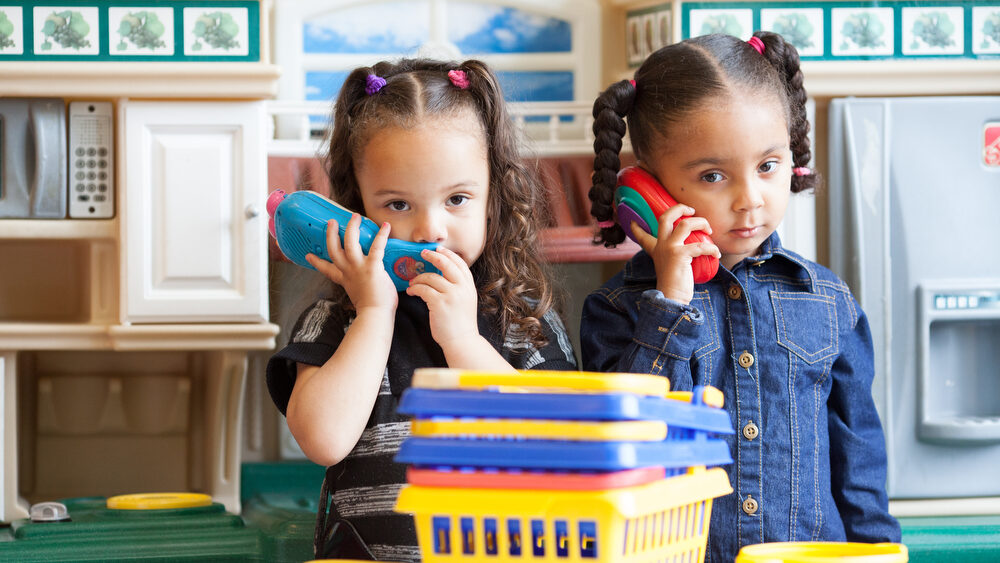
- This event has passed.
Kindergarten Briefing and Update

Implementing these programs and getting the work done is not always easy. But the more we can help each other out and lift [each other] up, the better.
Lisa Guernsey of New America shared the above quote as she moderated the session, engaging a panel of experts from the U.S. Department of Education as they highlighted the important work that has been completed through the Kindergarten Sturdy Bridge Initiative launched by Secretary Miguel Cardona.
Swati Adarkar opened the conversation by highlighting kindergarten as a bridge between early childhood and the early grades. She emphasized the need for developmentally appropriate practices that focus on the whole child, including social, emotional, multilingual and playful learning. Adarkar expressed her appreciation for the critical collaboration between the Department of Education and Health and Human Services, focusing on resources for children from birth to age 8, leveraging grants, research and guidance to accelerate this work.
Adarkar drew on the power of engagement with education stakeholders and organizations, sharing how the Transforming Kindergarten Collaborative has created a strong foundation:
[Through collaboration] we have developed solid and durable work to build on for our youngest students. And we’ve got to figure out how to come together to carry this forward. Philanthropy definitely needs to be part of this equation. So onward.
Jamila Smith continued the conversation by discussing several key initiatives from the Department of Education, beginning with the Ready to Learn program, which incentivizes the creation of high-quality educational media content such as TV shows, apps and games. Smith spoke about the Education Innovation and Research Grant program, which supports innovative approaches to education, including projects that focus on early learning and kindergarten readiness
Next, attendees heard from Christy Kavulic who described the joint policy statement on the inclusion of children with disabilities in early childhood programs, again emphasizing the importance of interagency collaboration between the Department of Education and Health and Human Services. Kavulic highlighted the updated policy released in November 2023, which reaffirmed the commitment to inclusion, particularly following the COVID pandemic. She stressed that inclusion in high-quality early childhood programs benefits all children and sets a positive trajectory for lifelong learning.
Melissa Castillo, Ed.D., noted the importance of high-quality dual-language immersion programs starting in kindergarten. She discussed the benefits of bilingualism and multilingualism for both English learners and English-speaking students, the need for clear identification of English and multilingual learners, and recent initiatives including a call to action for governors to support dual-language programs and the launch of a new comprehensive center for multilingualism in schools. Castillo also underscored the importance of clear terminology and identification of English learners and multilingual learners in early childhood, noting the need for explicit definitions to guide programs.
Tracey Scott, Ph.D., finished the presentations by discussing the Department’s Student Engagement and Attendance Center (SEAC) and its work on chronic absenteeism in the early grades, particularly kindergarten. She emphasized the impact of chronic absenteeism on third-grade reading proficiency and outlined SEAC’s efforts, including a recent learning series on kindergarten absenteeism and a new five-year contract to address early grade absenteeism in long-term planning.


